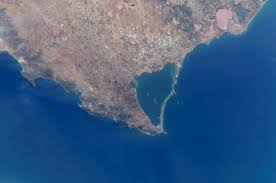
Introduction
Coral reefs, often referred to as the “rainforests of the sea,” are critical marine ecosystems that support a diverse array of marine life. They cover approximately 0.1% of the ocean’s surface but are home to more than 25% of all known marine species. Their importance is not limited to biodiversity; coral reefs provide vital economic benefits through tourism, fishing, and coastal protection. However, these precious ecosystems are facing unprecedented threats, making their conservation more crucial than ever.
The Current State of Coral Reefs
Recent studies have shown alarming statistics regarding coral reefs worldwide. According to the Global Coral Reef Monitoring Network, over 50% of the world’s coral reefs have been lost in the last 30 years, primarily due to climate change, pollution, and overfishing. In 2021, the Intergovernmental Panel on Climate Change (IPCC) warned that if global temperatures were to rise by more than 1.5 degrees Celsius, around 70-90% of coral reefs would suffer severe degradation.
Furthermore, events such as mass coral bleaching, caused by elevated sea temperatures, have led to dramatic declines in coral populations. In the Great Barrier Reef, the world’s largest coral reef system, half of the coral has died over the past three decades due to these environmental stressors. This year, scientists reported another extensive bleaching event linked to marine heatwaves, which are becoming more frequent due to climate change.
Conservation Efforts
Recognising the importance of coral reefs, various conservation efforts are underway. Organizations such as The Nature Conservancy and WWF are working on marine protected areas (MPAs) to limit human activities in critical habitats. Efforts also include restoring degraded reefs through coral gardening and breeding programmes, where corals are nurtured in nurseries before being replanted onto damaged reefs.
Technological advances are playing a significant role in these conservation strategies. Scientists are now using advanced genetic research to develop more resilient coral species that better withstand climate change and diseases. Such initiatives may hold the key to preserving coral ecosystems for future generations.
Conclusion
Coral reefs are invaluable both ecologically and economically, yet their survival hangs in the balance due to a multitude of threats. The ongoing coral bleaching events and habitat loss present urgent calls to action, not only for policymakers but for individuals as well. By supporting global conservation initiatives and advocating for sustainable practices, we can all play a role in preserving these vital ecosystems. The fate of coral reefs is intertwined with the health of our oceans and ultimately our planet, making it imperative to act now to ensure their survival.
You may also like

Recent Developments at Thames Water: Challenges and Initiatives

Understanding the Mar Menor: Challenges and Conservation

Reyes Cleary: Leading the Charge in Sustainability
SEARCH
LAST NEWS
- Remembering Wendy Richard: The Promise to Co-Star Natalie Cassidy
- How Did Anglian Water Achieve an ‘Essentials’ Rating for Mental Health Accessibility?
- Shai Hope Leads West Indies in T20 World Cup Clash Against South Africa
- What We Know About Weston McKennie: Future at Juventus and Past at Leeds
- What We Know About the Upcoming Live Nation Antitrust Trial